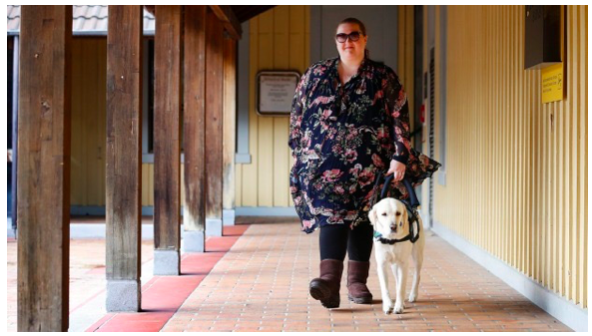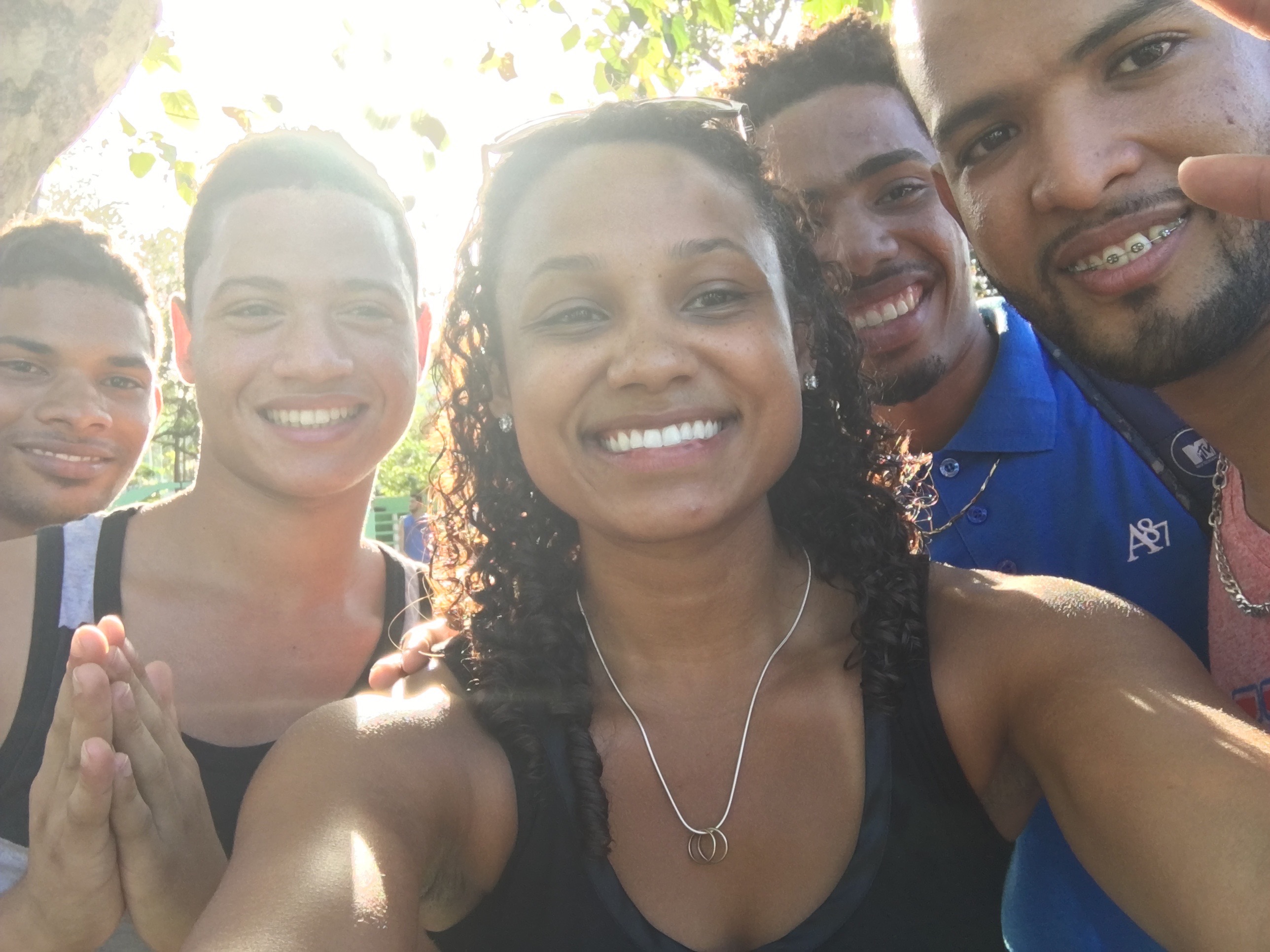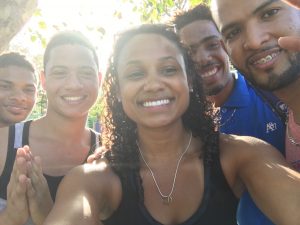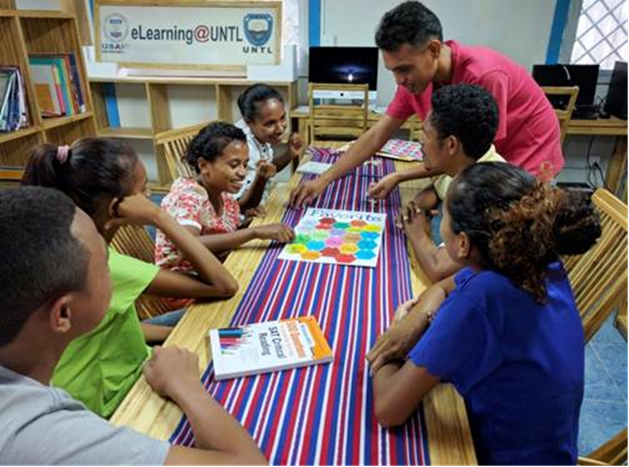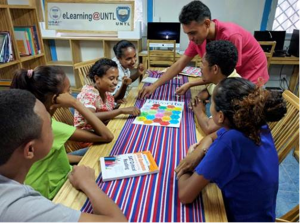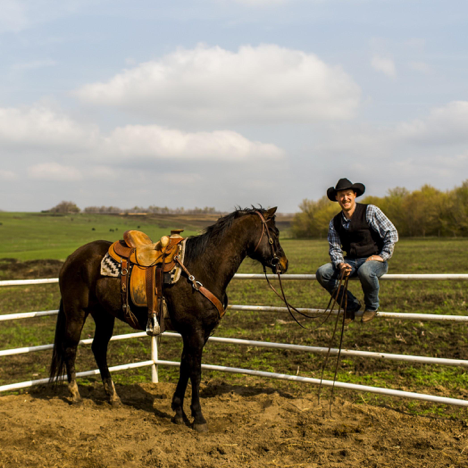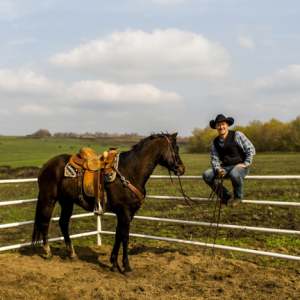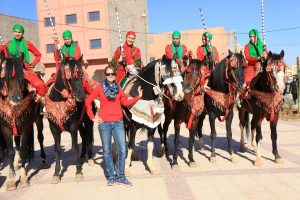
Gwyneth Talley, 2015-2016, Morocco (third from left), at the opening of a festival in Zagora, Morocco with Amal Ahmri and her tbourida troupe.
My Fulbright journey began with one distinct moment: My first Arabic class in 2009 where Tunisian Fulbrighter Beligh Ben Taleb, a Fulbright Foreign Language Teaching Assistant (FLTA), taught me my Alif–Baa–Taas (or my Arabic ABCs) at the University of Nebraska–Lincoln. It was Beligh’s first trip to the United States, first Ramadan in a non-Muslim country, and first American teaching experience. He would set a high bar for all the other Fulbright FLTAs to follow at the University.
I remember the class vividly, full of heritage speakers, curious students who wanted to work in government, and a few looking for a challenging language. Beligh took teaching Arabic in stride and encouraged us to participate in cultural activities by cooking traditional Arab meals, helping us translate songs, and dressing us up in Tunisian clothes. Aside from learning how to introduce ourselves, the most memorable phrase I remember Beligh teaching me was: “I ride horses.”
In the summer of 2010, I took my first trip to Morocco to study Arabic and French. I stayed with a horse training family, which would lead me to my graduate research in anthropology. While learning Modern Standard Arabic, my host family immersed me in Moroccan dialect and culture–specifically their horse culture. I also met the incoming Fulbright FLTA assigned to the University of Nebraska–Lincoln, Othmane Zakaria. He was born and raised in the city of Meknes where I was staying for the summer. We shared tidbits about our cultures, and I warned him to buy his winter coat in the States because Nebraska winters were not like winters in Morocco.
Continue Reading

